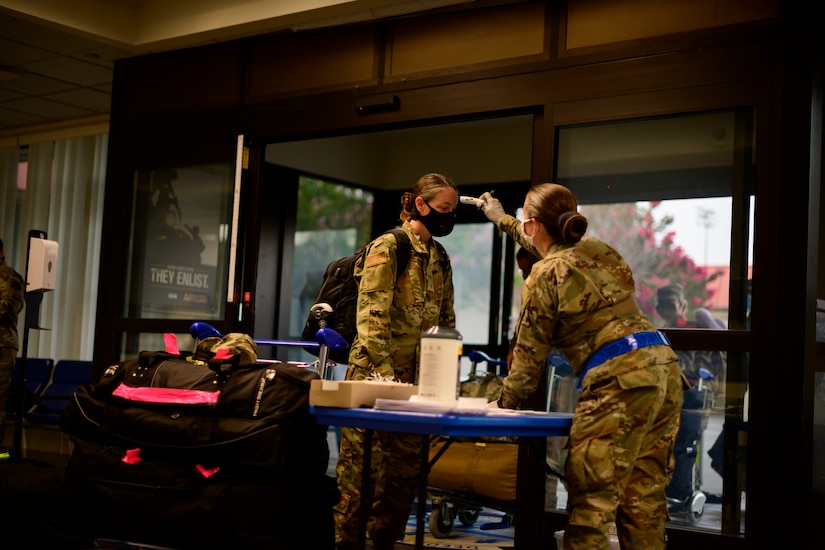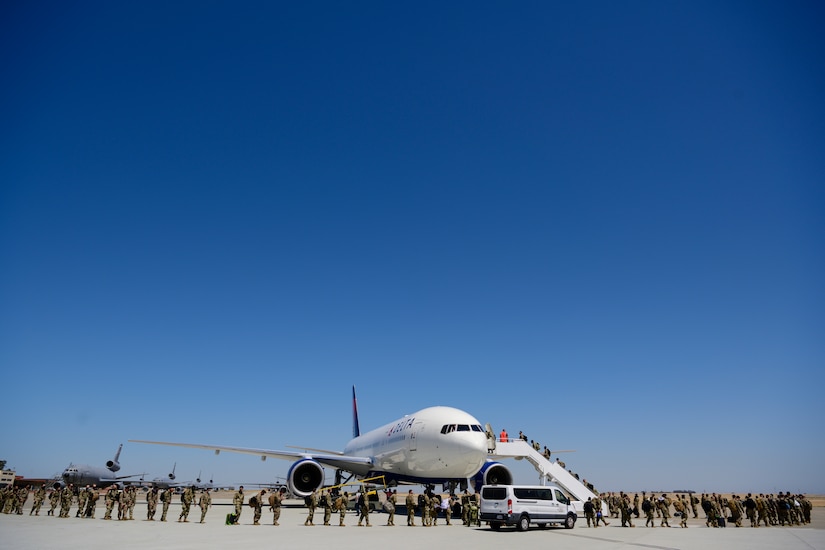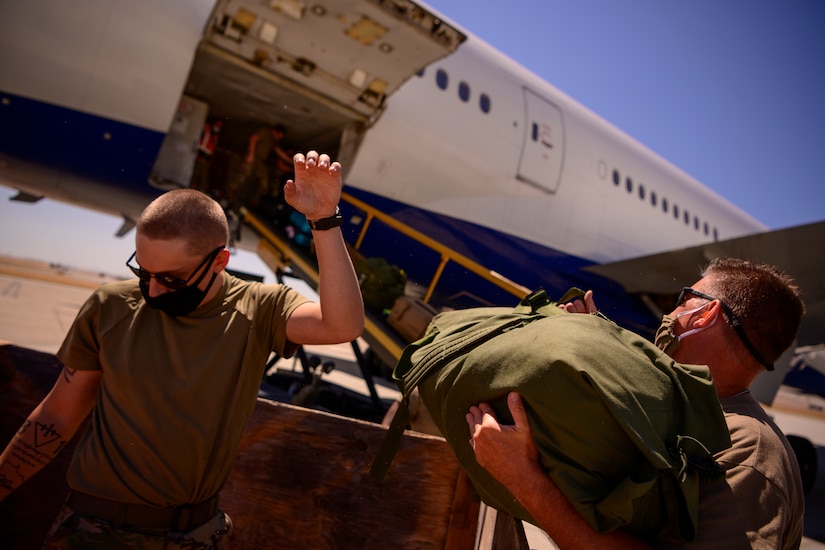Oct. 14, 2020 | , 60th Air Mobility Wing
The coronavirus has spread everywhere, with various strains impacting each person differently, according to the Centers for Disease Control and Prevention website. Keeping the virus from deployed locations is a top priority for Air Force leaders.
"The military departments, as force providers, are responsible for providing ready and trained forces to the geographic combatant commanders," said Air Force 1st Lt. Eunji Im, 60th Force Support Squadron officer in charge of the military personnel flight and restriction of movement reception cell manager. "To that end, the Department of the Air Force instituted force health protection guidance to make every [possible] effort to reduce the risk of COVID-19 exposure in deploying personnel."

Travis AFB implemented a restriction of movement program in the spring of 2020 to lower the spread and risk of exposure for deploying airmen. Under the program, deploying service members spend 14 days at Travis AFB prior to leaving for their deployed duty locations.
"The ROM serves as a mechanism to protect our military and civilian personnel in response to this global pandemic," Im said. "[It accomplishes this] by providing our deploying members with a clean corridor of travel from the continental U.S. into their respective theaters of operation while minimizing the risk of exposure to the COVID-19 virus.”
According to the Defense.gov website, a ROM is a general term referring to the limitation of personal liberty for the purpose of ensuring health, safety and welfare. As opposed to a quarantine, which removes someone who was exposed to the virus, a ROM keeps someone from coming in contact with someone exposed to COVID-19.
"Deploying personnel transiting through Travis AFB are lodged in our Westwind Inn lodging facility," Im said. "Each member stays in their own room which provides a bed, private bathroom, free Wi-Fi, cable TV and other amenities."

Im also pointed out these living conditions are one of the best. After all, the Westwind Inn is the winner of the 2019 Innkeeper of the Year award for best lodging in the Air Force.
At Travis AFB, airmen also have a personal shopper for the duration of their stay that can pick up essential items from the Travis AFB Main Exchange or Travis Commissary. To stay fit, they are allowed to work out at the track near the north gate.
Im also said to remain efficient, the FSS has weekly meetings with a public health working group, consisting of medical personnel from Travis AFB, to ensure COVID-19 mitigation efforts continue to keep everyone safe.
"Travis AFB was one of the first installations opened for these unique ROMs," said Air Force 1st Lt. Kenneth Elejorde, 60th Logistics Readiness Squadron installation deployment manager. "Now, there are 14 bases stateside providing this essential service to airmen deploying in the midst of a pandemic."

Originally, Travis AFB was one of five bases in the continental U.S. selected to support the ROM program. After 14 days and testing negative for COVID-19, airmen receive a signed certification from the 60th Air Mobility Wing commander, assuring a clean bill of health.
"A large part in making this a success is our collaboration with several agencies across the base," Elejorde said. "Providing ground transportation support, solidifying a safe check-in process at the passenger terminal, and enforcing public health protocols played a huge role in facilitating the movement of troops in a safe manner."
This isn't the first time Travis AFB has been at the forefront of the fight against COVID-19. In February, the 60th FSS opened the Westwind Inn to quarantine American citizens after they evacuated from China. The base worked closely with the CDC to house the evacuees.
"A lot of our airmen have proudly gone above and beyond their normal duties to ensure we take care of the deployers within this critical 14-day window," Elejorde said. "One simple mistake can result in a missed movement and a significant delay to the mission downrange, so it's important that we do everything right the first time."
Elejorde said the top priority is ensuring our airmen are ready to compete, deter and win in every capacity, keeping our Air Force strong.








No comments:
Post a Comment